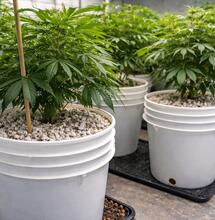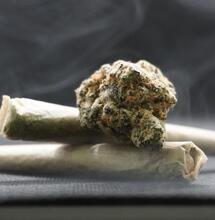Why is Medicinal Use Accepted and Ordinary Not?

Cannabis is among the most controversial plants on the planet. But it wasn't always like that. People have used it for millennia and for various reasons, including therapeutic, cultural, and recreational. Modern research appears to confirm the medicinal benefits of cannabis, helping to build more trust around cannabis among patients and the wider community. People who suffer various illnesses consistently report that they experience relief and health improvements from using THC/CBD products. While the medical advance has tremendously changed the image of cannabis, for some, the plant's regular use remains inadmissible. (Wonder who that can be.)
Like many other things in the world, the history of weed is complicated. And it is in history where we might want to look for answers on why for some people or factions of society the ordinary use of cannabis is something to fiercely object to. Something that they would roll their eyes at, sigh in disbelief or make comments about.
The stigma around cannabis use is without doubts linked to the widespread propaganda that has haunted cannabis in the past. In the early 20th century, it's no secret, cannabis was demonized unlike anything else. The scale of propaganda virtually equated weed with evil. It was called the Devil's Lettuce.
If you look at the Jazz Age, musicians spoke and sang in code about cannabis because the demonization was so big. Therefore all the different kinds of words such as pot, grass, dope, tea, weed, or reefer.
The anti-cannabis movement of the day certainly produced a complex, if not heinous, image of cannabis. All sorts of lies were said about the plant. Some of them are hilarious from today's perspective. For example, that smoking weed kills your libido. Quite the opposite, for some people pot is the perfect ingredient to warm them up in the bedroom.
What's more, some of the claims about cannabis were dangerous and promoted racial bias. There are numerous newspaper accounts that suggested "marijuana" or "marihuana" incited violence among Mexican users. It was sometimes called "loco weed", and "loco" means crazy in Spanish. Such stances on cannabis were used to promote anti-immigrant sentiments among other things. The fear of people of color was reinforced by the fear that these people also used "dangerous" drugs.
The anti-cannabis movement inevitably led to the Marihuana Tax Act of 1937, which signaled the era of wider prohibition. Around the same time, prohibition also spread around the world, and almost every country, every culture, including cultures that had used cannabis in traditional medicine for centuries, everyone aligned with the ban.
If you are looking for the most significant source of where unacceptance toward the regular or recreational use of cannabis comes from nowadays, that has to do with the generation that was brought up with all those horrid views and beliefs on cannabis.
It's a fact that the Silent Generation or those born between the mid-1920s and mid-1940s have some of the most strict opinions about recreational marijuana, and that simply mirrors the times that they lived in. Many people born in that period retain the overwhelmingly negative views and propaganda they've heard on cannabis throughout their youth and much of their adulthood.
But the same cannot be said for the generations after. Each next generation has more acceptance toward cannabis than the generation before. Cannabis is widely approved and enjoyed among Gen X (those born between the mid-1960s and early 1980s) as well as among Millennials (early-1980s and mid-1990s).
And then there is Gen Z, a generation that has spent most of their lives with totally opposite views of those projected at the Silent Generation. Born between the late 1990s and up until the early 2010s, the young adults of today have grown up with the sentiment that it's totally okay to chill with weed. Much like someone would be enjoying alcohol.
Unsurprisingly, Gen Z has the most approval of cannabis. Polls reveal that over 70% of young adults under the age of 30 believe that recreational cannabis should be legal, and more than 90% say that cannabis should be legal at least for medicinal use.
Times are changing as they say. As we move through a generational and cultural shift, soon enough we won't even have to answer why for some only the medicinal use of cannabis is okay and the other uses are not.










